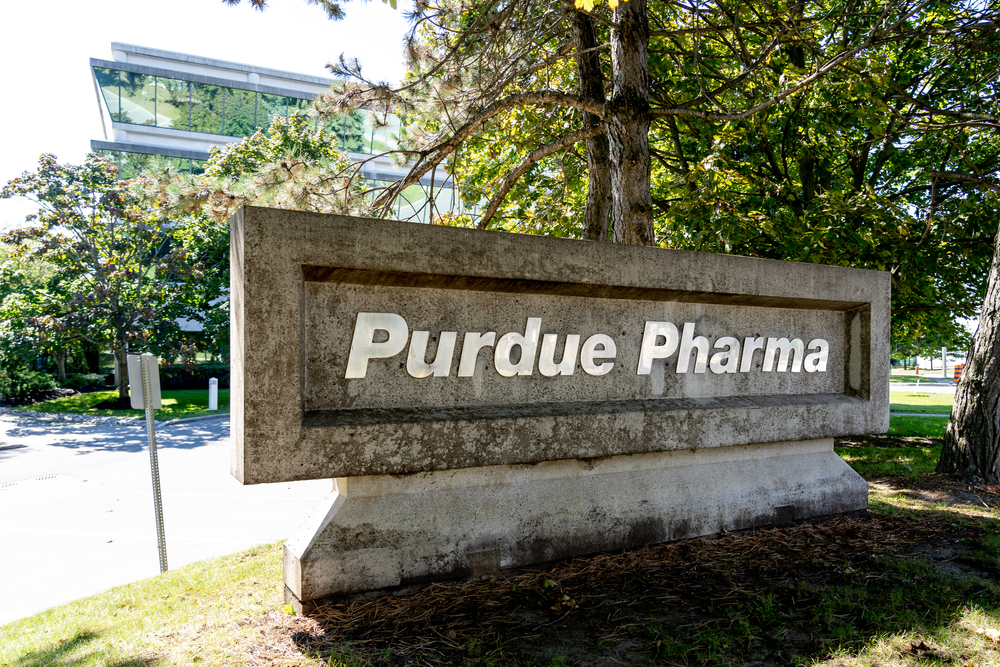The opioid crisis has devastated families across the world and caused preventable deaths. Drug overdoses have taken more than a million lives since 1999, according to data from the Centers for Disease Control and Prevention. Purdue Pharma, a pharmaceutical company worth billions of dollars, faces scrutiny for its role in the crisis. The company touted its opioid drug OxyContin as a safe, less addictive option for pain management. In reality, Oxycontin is highly addictive. The drug’s popularity helped create an opioid crisis, and it has damaged countless lives in the years since.
People whose loved ones overdosed on Purdue Pharma’s drugs have long blamed the company for its part in promoting opioids. Several state and local governments have sued Purdue for its actions, and all parties reached a settlement agreement in 2022. However, the U.S. Bankruptcy Trustee, part of the Department of Justice, opposed the deal. In return, the U.S. Supreme Court halted settlement plans after President Joe Biden’s administration requested a pause. The Supreme Court will hear the case in early December. In the meantime, family members are divided on the best way to proceed.
This all takes place as another opioid-related drug has raised concerns. Suboxone is a medication used to treat drug addiction, and it works by reducing withdrawal symptoms and helping stabilize people with opioid use disorder. However, the Food and Drug Administration has warned that the drug may have unanticipated side effects. One of the ingredients in Suboxone can cause dental problems like tooth decay and loss, cavities, and oral infections when patients take the medication orally. As a result, Suboxone lawsuits have been filed against the manufacturers and suppliers for acting negligently. The lawsuits claim that manufacturers only added warning labels after the FDA required it.
The Purdue Pharma Opioid Settlement Plan
Purdue Pharma filed for bankruptcy in 2021. Its initial bankruptcy plan included a provision to pay about $500 million upfront to settle claims from victims’ families. The plan was challenged by state attorney generals who said it wasn’t good enough. In 2022, Purdue entered an agreement with local and state governmental entities to form a new entity and use its profits to help fight the opioid crisis. Purdue is owned by the Sackler family, one of the wealthiest families in America.
The settlement plan included Sackler family members contributing billions of dollars, but it would protect them from individual civil lawsuits. They’d also be able to keep the money they made from Oxycontin sales, and the settlement allocates money for victims and their families. The plan was approved by the 2nd U.S. Circuit Court of Appeals in New York in July, but it quickly faced a challenge from the U.S. government.
The Government Pushes Back Over Opioid Settlement
Not everyone is happy with the proposed plan. Even the judge who initially approved the settlement called it a bitter result because the Sacklers wouldn’t be held more responsible. While the circuit court allowed the settlement plan to move forward, the U.S. Bankruptcy Trustee disagreed. The trustee said the Sackler family shouldn’t be shielded from lawsuits and asked the U.S. Supreme Court to intervene. The court put the settlement on hold in August, and the Supreme Court will hear the case on Dec. 4.
The court’s ruling will determine whether the settlement can move forward with the Sacklers avoiding personal responsibility or if it needs to be revised. Some proponents of the plan acknowledge that it isn’t perfect, but it will allow state and local governments to receive millions of dollars to aid the fight against the opioid epidemic. It would also allow victims and their loved ones to receive the compensation they deserve.
What Happens Next
The Supreme Court’s ruling could change the trajectory of the settlement process and hold the Sackler family responsible for their role in the crisis. The question is whether bankruptcy law allows individual parties to be shielded from lawsuits even if they haven’t filed for bankruptcy themselves. The court’s decision will likely have implications for similar cases that involve an entity filing for bankruptcy after being faced with lawsuits. Legal experts say it’s difficult to predict how the justices will vote, but the result could have wide-ranging consequences.



